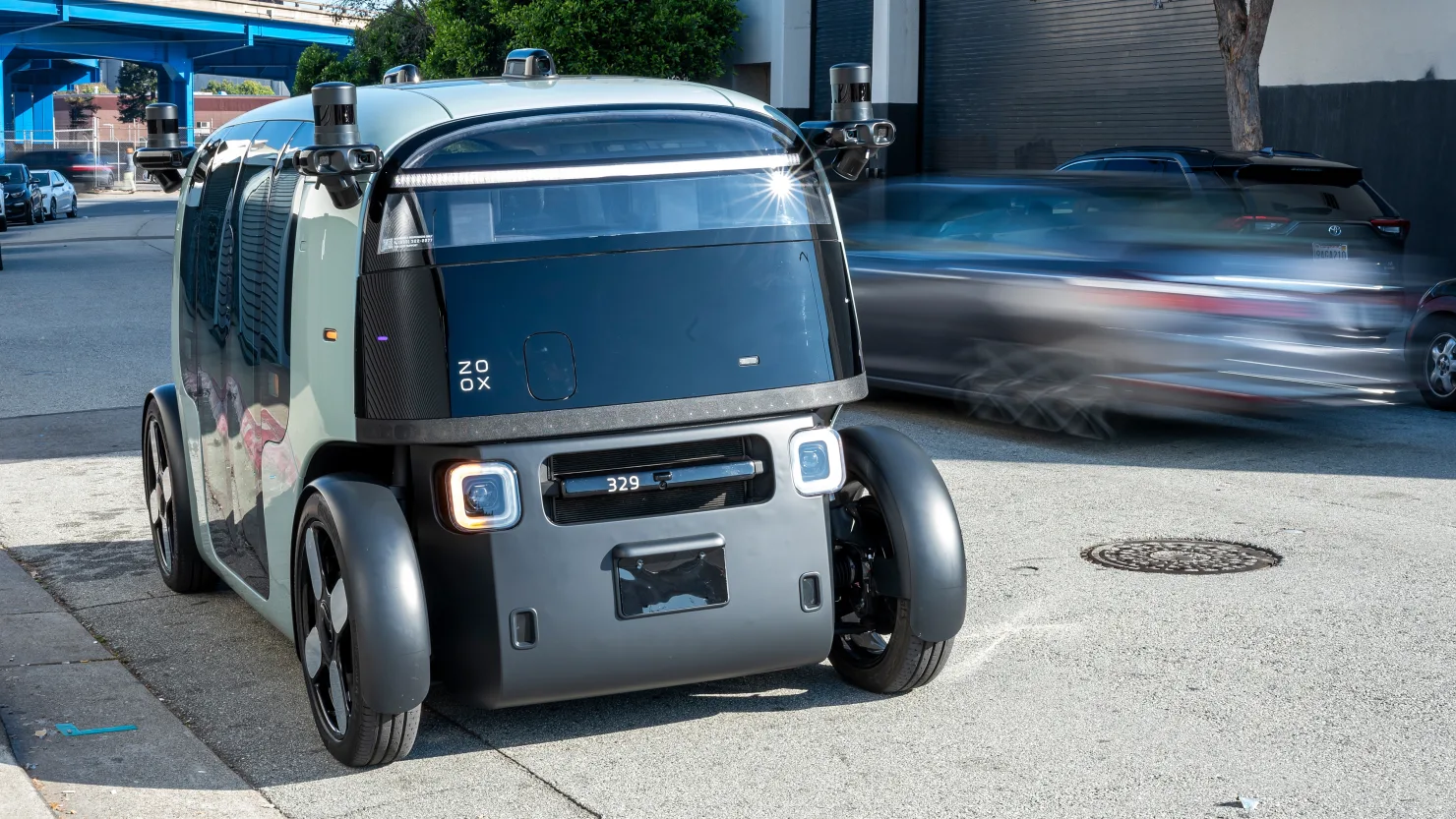Amazon’s autonomous vehicle unit, Zoox, has issued a voluntary software recall for the second time in a month following a recent crash involving one of its robotaxis in San Francisco. On May 8, an unoccupied Zoox robotaxi was making a low-speed turn and came to a stop to yield at an intersection when it was struck by a rider on an electric scooter. The scooter rider sustained minor injuries but declined medical attention. According to Zoox, the vehicle was stationary at the time of contact, and the scooter rider fell next to the robotaxi. After the collision, the robotaxi continued to complete its turn and then stopped without further contact with the scooter rider.
Zoox reported the incident by submitting a voluntary software recall report to the National Highway Traffic Safety Administration (NHTSA). A spokesperson for Zoox confirmed that the recall affects 270 vehicles and that the notice is expected to be published on the NHTSA website soon. The NHTSA has acknowledged receipt of the recall and cautioned road users to remain vigilant around autonomous vehicles, warning that these vehicles may misinterpret the travel paths of cyclists or scooter riders or make unexpected stops.
The recall follows concerns within the autonomous vehicle industry about the potential risks posed when self-driving cars continue to move after contacting vulnerable road users such as pedestrians, cyclists, or scooter riders. Such scenarios can lead to additional injuries or accidents. This issue has been highlighted by incidents involving other AV companies. For instance, Cruise, backed by General Motors, exited the robotaxi business after a collision in which its autonomous vehicle ran over a pedestrian who had already been struck by a human-driven car.
The recent San Francisco crash comes roughly two weeks after Zoox announced a separate voluntary software recall triggered by an incident in Las Vegas. In that case, an unoccupied Zoox robotaxi collided with a passenger vehicle, causing minor damage to both. The recall was aimed at fixing a defect in the vehicle’s automated driving system that could result in inaccurate predictions of other vehicles’ movements, increasing the risk of collisions.
Amazon acquired Zoox in 2020 for over $1 billion, with the goal of advancing autonomous ride-hailing technology. While Zoox continues to test and develop its robotaxi technology on public roads across the United States, other companies have made more progress toward commercial deployment. Alphabet’s Waymo already operates fully driverless ride-hailing services in cities including Phoenix, San Francisco, Los Angeles, and Austin, Texas, and is expanding to Atlanta.
Meanwhile, Tesla has announced plans to launch its long-awaited robotaxi service beginning next month in Austin, Texas. If successful, Tesla aims to roll out the service to other major cities such as San Francisco, Los Angeles, and San Antonio.
Zoox’s recent recalls highlight the ongoing challenges autonomous vehicle companies face in ensuring safety and reliability as they work toward broader commercial adoption. These recalls and incidents underscore the complexity of developing software capable of accurately predicting and reacting to dynamic, real-world conditions involving pedestrians, cyclists, and other road users. As competition intensifies in the self-driving car market, companies continue to refine their technologies and safety protocols in the race to bring autonomous ride-hailing to the mainstream.
READ MORE:
